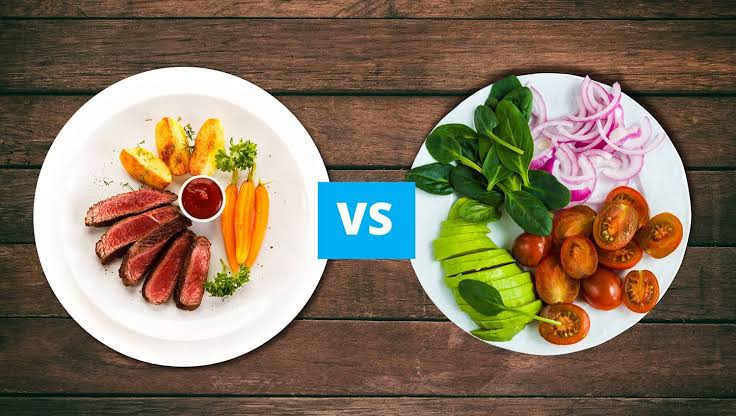
Everyday habits for a stronger immune system
A strong immune system depends on consistent everyday habits. Nutritious food, regular exercise, quality sleep, hydration, and stress management build a solid defense against illnesses. Avoiding processed foods, practicing good hygiene, and maintaining gut health further strengthen immunity. Outdoor activities and sunlight boost vitamin D, while regular checkups help catch issues early.
💪 Fitness Guru
38 min read · 25, Sep 2025

Introduction
Your immune system is your body’s personal army—it protects you from infections, helps you heal, and keeps you strong against illnesses. But immunity doesn’t rely only on supplements or medicines. It’s your daily habits—what you eat, how you move, how you sleep, and even how you think—that build long-term resilience.
In today’s fast-paced lifestyle, it’s easy to weaken immunity through stress, poor diet, and lack of rest. The good news? By making small, consistent changes to your everyday routine, you can naturally strengthen your defense system.
In this article, we’ll explore the science behind immunity, the role of habits in boosting it, and practical steps you can adopt right away for lifelong protection. A strong immune system is one of the greatest defenses we have against illnesses, infections, and fatigue. It works like an inner shield, protecting the body from harmful bacteria, viruses, and other invaders that try to disturb our health. While many people rely on supplements or medicines when they feel weak, the truth is that the immune system is best nurtured daily through consistent and simple lifestyle habits. Building immunity is not about one miracle food or one-time effort; it is about a steady routine that keeps the body balanced, nourished, and prepared for challenges.
One of the most fundamental aspects of strengthening immunity is nutrition. The foods we consume each day either fuel our body with protection or leave it more vulnerable. A diet rich in fruits, vegetables, whole grains, lean proteins, nuts, and seeds provides essential vitamins, minerals, and antioxidants that help the immune system perform at its best. Vitamin C from citrus fruits, zinc from nuts, iron from leafy greens, and probiotics from yogurt are natural boosters that keep immune cells active. Hydration is equally important, as water helps flush out toxins and ensures that nutrients are carried efficiently throughout the body. Avoiding excessive sugar, processed food, and junk meals makes it easier for immunity to stay strong because such foods often lead to inflammation and sluggishness.
Sleep is another habit that is often underestimated but is critical for immunity. The body repairs and restores itself while we sleep, and immune cells regenerate during this time. Lack of sleep weakens the body’s defense and makes it easier for infections to take hold. Consistently aiming for seven to nine hours of quality sleep each night ensures that the immune system remains resilient. Going to bed and waking up at the same time daily helps maintain a rhythm that benefits overall health. Even short naps during the day can give the body a chance to recharge when needed.
Physical activity is not only good for maintaining fitness but also for enhancing immunity. Exercise improves blood circulation, reduces stress hormones, and stimulates the production of antibodies and white blood cells, which are crucial for fighting infections. It does not require heavy workouts to see benefits; even simple daily habits like walking, yoga, cycling, or stretching help keep immunity in good shape. Moderate exercise performed consistently is more effective than occasional intense efforts. Movement throughout the day, such as avoiding sitting for long hours and taking short breaks to stretch, is equally valuable for overall well-being.
Managing stress is also a vital habit for a stronger immune system. Chronic stress elevates cortisol levels, which weakens immune responses and leaves the body open to illnesses. Developing small routines for relaxation such as meditation, deep breathing, journaling, or simply spending time in nature can create balance and peace of mind. Even laughter and meaningful conversations with loved ones release positive hormones that counter stress and support immunity. Recognizing when to slow down and giving the mind a break from constant pressure is not just emotionally refreshing but also physically protective.
Another everyday habit that supports immunity is maintaining proper hygiene. Washing hands regularly, keeping surroundings clean, and following good food safety practices reduce the chances of harmful germs entering the body. While these seem like simple acts, they prevent unnecessary strain on the immune system. Personal hygiene also includes oral care, as dental infections can spread bacteria to other parts of the body. Protecting the body externally helps the immune system focus on deeper internal functions.
Exposure to sunlight is often overlooked, but it is one of the best natural ways to get vitamin D, which is vital for immunity. Spending at least 15 to 20 minutes in natural sunlight daily supports bone health, regulates mood, and strengthens immune defenses. For people who do not get enough sunlight, vitamin D–rich foods such as eggs, fortified milk, and mushrooms are valuable alternatives. Fresh air and spending time outdoors also improve lung function and refresh the mind.
Avoiding harmful habits is just as important as building healthy ones. Smoking, excessive alcohol consumption, and reliance on unhealthy processed foods weaken immunity over time. These habits interfere with nutrient absorption, increase inflammation, and slow down recovery. Choosing healthier alternatives, drinking enough water, and giving the body rest from toxins can make a big difference in building resistance.
Equally significant is the role of maintaining a healthy weight. Being underweight or overweight can stress the immune system. A balanced diet combined with active living helps keep the body at an optimal weight, reducing the risk of chronic diseases and keeping immunity active. The body works best when it is not overloaded, and a stable weight makes it easier to fight infections and recover quickly.
A sense of routine and discipline itself can be considered a habit for a stronger immune system. Eating meals on time, sleeping at regular hours, keeping a consistent exercise schedule, and balancing work with relaxation all create a stable internal environment. The immune system thrives when the body functions on regularity rather than chaos.
Human connection and positive emotions are also underrated yet powerful factors for immunity. Loneliness and isolation have been shown to weaken the body’s defenses, while community, love, and belonging strengthen resilience. Sharing time with family, bonding with friends, or even caring for pets creates joy that enhances immunity naturally. Emotional health and physical immunity are closely connected, so taking care of relationships is just as important as taking care of diet and exercise.
Building a stronger immune system is not about waiting until sickness arrives but about creating a shield every single day through habits that support health. These daily actions may seem small, but when combined, they give the body strength to withstand stress, fight infections, and recover faster. By choosing nourishing foods, prioritizing rest, staying active, managing stress, practicing hygiene, enjoying nature, avoiding harmful substances, and nurturing relationships, anyone can cultivate lasting immunity. The immune system responds to consistency, and with each positive choice made daily, the shield of health becomes stronger. A healthier lifestyle is not built overnight, but each simple habit contributes to an immune system that protects, supports, and allows the body to thrive.
Understanding Your Immune System
Your immune system is a network of cells, tissues, and organs that work together to defend your body. The key players are:
- White Blood Cells (WBCs): Attack and destroy harmful invaders.
- Antibodies: Proteins that recognize and neutralize viruses or bacteria.
- Bone Marrow & Lymph Nodes: Produce and store immune cells.
- Gut Microbiome: Healthy bacteria in your intestines that support immunity.
A strong immune system means:
- Quick response to infections
- Lower risk of chronic diseases
- Faster recovery from illness
- Better overall energy and vitality
When your immunity weakens, you may face frequent colds, digestive issues, fatigue, slow healing, or even serious health complications.
Everyday Habits That Strengthen Immunity
1. Eat a Balanced, Nutrient-Rich Diet
Food is your immune system’s fuel.
- Vitamin C: Found in oranges, kiwi, bell peppers, and amla—boosts WBC function.
- Vitamin D: From sunlight, mushrooms, and fortified milk—regulates immune response.
- Zinc: Present in nuts, seeds, beans, and seafood—supports healing and immunity.
- Probiotics: Yogurt, kefir, and fermented foods keep your gut microbiome strong.
- Antioxidants: Berries, green tea, garlic, and turmeric reduce oxidative stress.
2. Stay Physically Active
Regular exercise boosts circulation, which helps immune cells travel quickly throughout the body.
- Light activities like walking, yoga, and cycling improve immunity.
- Too much intense exercise without recovery, however, can temporarily weaken defenses.
3. Prioritize Quality Sleep
Your immune system repairs itself during deep sleep.
- Adults need 7–9 hours nightly.
- Poor sleep lowers antibody production, making you prone to infections.
4. Manage Stress Wisely
Chronic stress raises cortisol, which suppresses immune function.
- Practices like meditation, journaling, or deep breathing calm your nervous system.
- Even small habits—like spending 10 minutes in nature—reduce stress hormones.
5. Stay Hydrated
Water helps transport nutrients, remove toxins, and keep mucous membranes moist, acting as a first defense against germs.
- Aim for 8–10 glasses daily, more in hot weather or after exercise.
6. Maintain Good Hygiene
Simple habits like washing hands before eating, sanitizing surfaces, and proper food handling prevent infection overload on your immune system.
7. Avoid Excess Sugar and Processed Foods
Refined sugar weakens WBC response and feeds harmful gut bacteria. Swap sugary drinks and snacks for fruit, nuts, or herbal teas.
8. Limit Alcohol and Quit Smoking
Both alcohol and smoking lower immunity by damaging cells and reducing nutrient absorption. Reducing or eliminating them makes your body stronger.
Daily Routine for Strong Immunity
Morning
- Start with warm water and lemon to flush toxins.
- Do 10–15 minutes of yoga, stretching, or a brisk walk.
- Eat an immunity-boosting breakfast: oats with berries, nuts, and a glass of fresh juice.
Midday
- Take short movement breaks to reduce sitting fatigue.
- Lunch rich in greens, lentils, or lean proteins.
- Hydrate with water or herbal teas.
Evening
- Light activity like cycling, dance, or play with pets.
- A balanced dinner with vegetables, whole grains, and omega-3 sources like flaxseeds or fish.
- Avoid heavy, greasy, or very late-night meals.
Night
- Unplug from screens 30 minutes before bed.
- Do deep breathing or gratitude journaling.
- Sleep early for a full 7–8 hours of rest.
Weekly Habits for Stronger Immunity
- Add 2–3 strength training sessions along with cardio.
- Try new immunity-boosting recipes like turmeric milk or beetroot salad.
- Schedule one tech-free day or nature walk for stress relief.
- Spend quality time with friends or family—social connection supports emotional immunity.
- Rotate your fruits and veggies for a variety of nutrients.
Common Immunity Problems and Prevention Tips
Frequent Colds:
Cause: Vitamin C deficiency, poor hygiene
Prevention: Daily citrus fruits, handwashing, regular exercise
Low Energy or Fatigue:
Cause: Iron, B12, or sleep issues
Prevention: Iron-rich foods, balanced sleep schedule
Digestive Issues:
Cause: Weak gut microbiome
Prevention: Probiotics like yogurt, fiber-rich foods, limit processed items
Slow Healing:
Cause: Low zinc or protein intake
Prevention: Include nuts, beans, eggs, and lean proteins
Myths About Immunity: Busted!
“Only supplements can make you strong.”
→ False! Food, sleep, and lifestyle changes are far more effective long term.
“If I exercise a lot, I’ll never get sick.”
→ Not true. Overtraining without rest can suppress immunity. Balance is key.
“Drinking hot water alone kills viruses.”
→ No, while warm water aids digestion and hydration, it doesn’t kill viruses.
“Only winter needs immunity care.”
→ Wrong! Your immune system needs daily support, year-round.
“Strong immunity means you’ll never fall sick.”
→ False. A healthy immune system reduces severity and speeds recovery—it doesn’t make you invincible.
Sample Immune-Boosting Day Plan
Breakfast
- Spinach omelette or oats with nuts and fruits
- Fresh orange juice or amla shot
Workout
- 20–30 minutes brisk walk, yoga, or light cardio
Lunch
- Lentil soup with brown rice and mixed vegetable salad
- A glass of buttermilk for probiotics
Evening Snack
- Handful of almonds and walnuts
- Herbal tea with ginger and tulsi
Dinner
- Grilled vegetables with quinoa or chapati
- Golden turmeric milk before bed
Weekly Add-Ons
- 2–3 sessions of meditation or guided relaxation
- A long outdoor walk or park visit
- Cooking one new colorful recipe full of greens and fruits
Conclusion
Your immune system thrives not on occasional fixes but on everyday consistency. Each small habit—from choosing fresh foods, moving daily, and sleeping well, to practicing mindfulness—adds up to a stronger defense system.
Think of it like building a shield: every glass of water, every walk, every healthy meal, and every peaceful night’s sleep is another layer of protection.
You don’t need drastic changes—just steady, mindful actions. Start today with one small habit, and over time, you’ll notice the difference in your energy, resilience, and overall well-being.
Your immune system is your lifelong partner. Nurture it daily, and it will protect you for life.
Q&A Section
Q1:- How does a balanced diet contribute to a stronger immune system?
Ans :- Eating fruits, vegetables, whole grains, lean protein, and healthy fats provides essential vitamins, minerals, and antioxidants that fuel immune cells and fight infections.
Q2:- Why is regular exercise important for immunity?
Ans :- Moderate physical activity boosts circulation, reduces stress hormones, and enhances the activity of white blood cells, making the body more resilient to illnesses.
Q3:- How does quality sleep affect immune health?
Ans :- Sleep allows the body to repair itself, release infection-fighting proteins (cytokines), and strengthen immune memory, improving resistance against viruses and bacteria.
Q4:- Why is hydration vital for immune defense?
Ans :- Water carries nutrients to cells, flushes out toxins, and keeps mucous membranes moist, creating a protective barrier against germs entering the body.
Q5:- How does stress management support immunity?
Ans :- Chronic stress raises cortisol levels, which weakens white blood cells. Relaxation techniques like meditation, yoga, or deep breathing protect immune function.
Q6:- Why should processed foods and excess sugar be avoided?
Ans :- They cause inflammation, weaken gut health, and lower immune efficiency, increasing vulnerability to infections and long-term health issues.
Q7:- How does maintaining good hygiene improve immunity?
Ans :- Regular handwashing, oral care, and personal cleanliness reduce the risk of infection, allowing the immune system to focus on internal protection.
Q8:- Why are probiotics and gut health linked to immunity?
Ans :- A healthy gut microbiome regulates immune responses, produces protective compounds, and blocks harmful pathogens from multiplying.
Q9:- How does spending time outdoors strengthen the immune system?
Ans :- Sunlight helps the body produce vitamin D, which activates immune defenses. Fresh air and nature also reduce stress and improve overall wellness.
Q10:- Why are regular health checkups important for immunity?
Ans :- Routine medical checkups detect deficiencies, chronic conditions, or infections early, allowing timely action to support and protect immune health.
Similar Articles
Find more relatable content in similar Articles

Superfoods that naturally boost immunity..
Superfoods are nature’s immun.. Read More

How Much Protein Do You Really Need? A Complete Guide for We..
Protein is key for weight los.. Read More

Everyday habits for a stronger immune system..
A strong immune system depend.. Read More

Plant-Based vs. Animal Protein: Which is Better for Your Fi..
Choosing between plant-based a.. Read More
© 2024 Copyrights by rFitness. All Rights Reserved.